- Home
- Sinéad Moriarty
A Perfect Match Page 21
A Perfect Match Read online
Page 21
‘No, not really.’
‘What do you mean by not really?’ asked Dervla, pushing Donal to the limit.
‘Lookit, Dervla, I don’t know what I mean by it. The bottom line is that they are a great pair. They’re mad about each other and they’re lovely people. James is a true gentleman and a fantastic friend and Emma is a great girl too. Any child – especially one from some hole in Russia – would be lucky to have them as parents.’
‘That’s all very well, Mr Brady, but it’s my responsibility to look after the welfare of each child and I need to be sure about the Hamiltons. I need to know exactly what kind of parents they would make and what kind of a life the child would have with them.’
‘I’m guardian to my fifteen-year-old niece Annie. My sister died five years ago, and left me in charge of her. And the way I see it is this – you sink or swim,’ said Donal, trying not to show his annoyance. ‘None of us knows what we’re doing as parents. You just get on with it and sometimes you make mistakes and sometimes you get it right. But there is no perfect parent. If you’re a decent person, well, then, hopefully you’ll get more right than wrong and the kid will turn out OK. There are no guarantees; you just give it your best shot. And I can tell you right now, James and Emma will do everything they can to be good parents, so don’t be asking me about their innermost feelings, because I don’t know what they are. I just know that they’re good people and they deserve a break.’
Dervla was clearly taken aback. Obviously she had had no idea that this rugby jock was an adoptive parent himself, struggling to bring up a teenager. Donal hoped he hadn’t blown it by ramming the point home, but he was fed up with her psychoanalysis. They looked at each other in silence; Dervla jotted down some notes and then got up to leave. Donal wasn’t sure if the look on her face was one of shock, dislike or grudging admiration. He was hoping for the latter, because if he had messed up, he’d never be forgiven.
When Dervla came for the home visit after seeing Donal, I tried to get a reaction from her, but she was giving nothing away. Donal had told us he thought it had gone well, but he hadn’t been overly confident and I was worried that he may have given the wrong impression.
‘So how did it go with Donal?’ I asked.
‘Fine,’ said my monosyllabic home visitor.
‘He’s a nice guy. He can seem a bit laddish, but he’s really a good person and he’s done a great job raising his niece,’ I added, hoping to pull at her heart strings – if she had any.
‘So it would seem.’
‘Did he give us a good reference?’ I asked, deciding to cut to the chase.
‘The meeting went well, Emma. That’s all I can say.’
Fine, you stupid old cow, I thought, turning around to make a face at the wall. God, she could be a cold fish at times. James came in and we began our penultimate session. We were both relieved they were nearly over. The meetings were very draining and we were sick of talking about the same things over and over. That day we discussed our capacity to provide an environment where the child’s original race, nationality, culture, religion and language would be valued and promoted.
I told Dervla that we had been learning Russian for a few months now and while we weren’t fluent speakers, we could certainly get by. Then, to demonstrate, I had a one-sided conversation with James – where I said every sentence I could think of and he said ‘Spasiba and ‘Da at regular intervals. She didn’t exactly stand up and cheer, but at least she could see we were making an effort. We assured Dervla that we were very open to teaching the child about its culture and background. I gave her a brief history of Russia that I had memorized – and believe me with my memory it was brief – but it covered the main points.
As usual James and I did all the talking and Dervla took notes. When the two hours were up she made the final appointment to see us in two weeks’ time and told us that we’d be covering our hopes and expectations and how we felt the adoption would affect our lives.
While I was thumbing through The Russian Adoption Handbook by John Maclean in an attempt to dazzle Dervla with my research during our final meeting, I stumbled across the part where he says how much a Russian adoption costs: ‘The general rule of thumb is that the adoption should cost between S12,000 and S20,000, not including an additional $4000 for travelling and staying in Russia.’
What? The adoption people had said that there would be some fees depending on the country you decided to adopt from and the agencies you used to match you with your baby, but I had never thought it would be that much. It was going to cost us twenty thousand Euro to adopt one child. And what about the others? I wanted three. Sixty thousand Euro for a family? It was daylight robbery. I had expected to pay a couple of thousand maybe, but, my God, that was insane. We’d have to get a bank loan and spend years paying it off.
‘James, you’re not going to believe this,’ I said, shaking the book in his face. ‘This adoption is going to cost us twenty grand.’
‘Pardon?’
‘Twenty grand, it says so here.’
James took the book and read it. ‘Well, perhaps the Russians like to rip the Americans off,’ he said. ‘I’m sure they don’t charge as much for fellow Europeans. They couldn’t. That’s outrageous. I’m sure it’s just a way of getting back at the Yanks.’
‘Maybe, I’ll check it on the Internet.’
I came back down half an hour later.
‘James, we need to go and see the bank manager tomorrow to get a twenty grand loan. It’s true, they do charge that much for all adoptions in Russia. Apparently the Russian adoption agencies are now charging more than ever to match you up with a child, because the demand has sky rocketed.’
‘But that’s ridiculous. It’s unethical.’
‘Since when have the Russians been ethical? Sure aren’t they all mad trom living in the snow all year round.’
‘Christ,’ said James, looking decidedly put out.
‘You know the worst part.’
‘What?’
‘We want to adopt three so it’s going to cost us sixty grand.’
‘Can’t you get two for the price of one?’
‘I wanted to adopt two, but you said it wasn’t a good idea, that we should see how we get on with one.’
‘Well, maybe I’m changing my mind. Jesus, this adoption thing is just one bloody hurdle after another.’
‘I know, but it’ll be worth it when we get our little baby.’
‘I hope so, Emma, I really hope so,’ grumbled James.
I couldn’t allow negative thoughts to creep in at this late stage. We were nearly there. We couldn’t back out now. And what was money when you compared it to the years of joy a child would bring?
When Dervla arrived for our final session neither James nor I was feeling particularly sunny about the adoption. We were still reeling from the cost factor. When Dervla asked us how we felt the adoption would change our lives and to discuss our hopes and expectations, James said, ‘Well, Dervla, I hope that we get a healthy child, particularly now that I’ve discovered that it will change our lives by crippling us financially.’
Dervla nodded. ‘I understand that it’s hard when you feel that you are essentially buying your child, but I’m afraid that is a fact of life when it comes to most overseas adoptions. There will always be costs involved. Is this changing your minds at all?’ she asked, looking at James’s glowering face.
‘No,’ I jumped in. ‘We only found out about the costs a few days ago, so we’re just coming to terms with it. It’s fine, we are still absolutely committed to adopting a child and giving it a happy and healthy home.’
‘You do realize that despite the costs, your child may not be healthy. In fact they will most likely be underweight and in some cases very undernourished. Children who have been in institutional care will often show delays in language and social skills, behavioural problems, and abnormalities in attachment behaviour …’
I looked out the window as Dervla reminded us once again of all the things th
at could go wrong. I wanted to cry. Were we mad? I wondered. Should I go back to having IVF? This whole adoption process was such a leap of faith. If James was having doubts, maybe we should stop. But we’d come so far and been through so much. Then again, we had no idea what type of child we’d get. If we got approved, we’d be placing our trust in some Russian agency to find us a baby. They didn’t know us, they didn’t care about us. We were a statistic. I glanced over at James. He nodded slowly and reached out to hold my hand.
‘Thank you, Dervla,’ he said, interrupting her. ‘We are well versed in all the possible ailments a child may have, but despite this and despite the astronomical cost, we are still committed to this process. Now let’s move on shall we?’
29
It was a four-week wait until we found out whether or not we had been approved – or disapproved. I lurched from feeling positive to feeling utterly negative. I tormented James on an hourly basis.
‘Do you think we’ll get through?’
‘Yes, I’m sure we will.’
‘How can you be sure?’
‘Because Dervla can see that we are normal, sane people who will be good parents.’
‘I don’t think we will. She didn’t like us, especially me. She thought I was an idiot, especially after the day we did the loss charts.’
‘Emma, we’ve gone over this a hundred times. Dervla understands that you were nervous and don’t really count losing your front teeth as a life-altering incident.’
‘Does she really though?’
‘Yes.’
‘How do you know? She never said anything.’
‘Because nobody in their right minds would admit to being traumatized by the loss of a tooth – it was obvious you were just babbling. Dervla could see that.’
‘Actually, James, I was upset by it. At seven years of age it is a big deal to turn up to your First Holy Communion in a blood-stained dress with no front teeth.’
‘Fine. Whatever.’
‘Don’t whatever me. I’m the one that whatevers. So what do you think?’
‘About what exactly?’ said James, getting annoyed.
‘Our chances of being approved.’
‘As I said five minutes ago – I think they are good. Now can we please talk about something else?’
‘Fine, whatever.’
Thankfully, for James, I was flat out with work – averaging three weddings a week plus my regular slot with Amanda – so I could only quiz him on an irregular basis. Amanda’s production team had put the final touches in place for Babs’s operation and she was coming into the studio for an interview before she flew to London to begin her pre-operation filming. Babs was a natural on TV. Her confidence, total disregard for what anyone else thought of her and brutal honesty made for excellent viewing. Although Babs was being deadly serious, everyone else thought she was hilarious. She sat on the couch with Amanda and talked about the upcoming operation.
‘So, Babs, why are you having this operation?’
‘It’s very simple. I’d be really good looking if it wasn’t for my stupid nose. My family calls me Seabiscuit – you know, like the racehorse. They think it’s hilarious. My dad keeps telling me how lucky I am to have inherited his honker – like that’s going to make any difference. The nose is bad enough on him – but on a girl, especially a skinny girl like me, it’s a disaster. When I was a kid, I used to Sellotape my nose every night. I’d wrap the Sellotape around my head to squish my nose down, but it made no difference and I just ended up with a rash on my face from the glue,’ said Babs, deadly serious as everyone else tried not to laugh. ‘So, you see, I’ve wanted this nose job since I was very young. I’ve spent the last ten years begging my dad to pay for a new nose, but he kept telling me that I’d grow into it – how the hell are you supposed to grow into a nose? – put on ten stone and have a sex change? My mother kept telling me not to be so shallow, that beauty was from within. Hello? What a load of crap. If you look like a big fat ugly oaf then you can be sure that you’ll feel like one. What looks like shit, feels like shit.’
‘How do you think having cosmetic surgery will change your life?’ asked Amanda, jumping in with a question before Babs cursed again. Live TV could be tricky when your guest was as spontaneous as Babs.
‘Simple. It’ll make me a star. Once I get my new nose, I won’t look like a young Barbra Streisand any more, I’ll look like a young Jennifer Aniston. I’m heading straight out to Hollywood to become an actress.’
‘What would you say to other young girls who are considering plastic surgery?’
‘Go for it. If you need to change something, change it. There’s no point sitting around feeling sorry for yourself. Sort it out.’
‘Are you nervous at all about going under the knife?’ Amanda asked.
‘Are you mad? I’ve been waiting to have this done since the first day I ever looked in the mirror. I can’t wait to get to London and have the operation. Bring it on!’
‘How does your family feel about you going through with this operation on national television?’
Babs laughed. ‘My mother’s planning on entering the witness protection programme because of the shame of it all. But my dad’s happy enough because he doesn’t have to foot the bill.’
I stood to the side of the set and watched as my little sister encouraged the daytime TV viewers to go under the knife. The girl was a law unto herself. I knew Mum would be watching at home, having a seizure. Amanda, on the other hand, was thrilled. Babs was exactly the kind of person she wanted on her show – outspoken, controversial and blunt. She knew the media would pick up on the story and that the papers would be full of debate about Babs’s forthcoming plastic surgery. Her ratings would go through the roof. A controversial guest was every presenter’s dream. Amanda did however warn Babs about her cursing – she’d have to be more careful about that.
When I got home, Mum was parked outside the house, in a pair of dark glasses and a scarf. She darted through the front door after me and hissed at me to pull down the blinds.
‘Mum, what is going on?’ I asked as I turned the light on in the now pitch-dark kitchen.
‘What did I do, Emma? What did I do to deserve this? Did you see that sister of yours on the programme today? Did you? Did you see her?’
‘Yes, Mum, of course I saw her. I work on the show – remember.’
‘Telling all the young girls in the country to go out and get plastic surgery. I’ve already had Nuala on about it. Needless to say, I pretended I wasn’t home, but she left a long message on the machine. Delighted she is. Gloating.’
Nuala was my mother’s best friend. They’d been pals since they met in secretarial school at the age of eighteen and they drove each other insane. Whenever any of us were in trouble, Nuala was the first to call over to offer her condolences – but she was really only coming over to gloat and make herself feel better about her own brood, according to my mother. When Nuala’s son, Terry, had come out of the closet and announced he was gay, my mother had been over like a shot, armed with self-help books for parents of gay children. Although, having spent most of his teenage years wearing mascara and worshipping Liza Minnelli, it was more of a surprise to everyone that it had taken Terry so long to admit it, than anything else. Anyway, suffice it to say that Mum and Nuala had a love–hate relationship, based on one-upmanship.
‘ “I just saw Barbara on the television”, says Nuala,’ recounted my mother, tapping her fingers on the table. ‘ “Isn’t it well for her, getting a new nose and heading off to Hollywood. You must be very proud. It’s lovely to see the young people today being so open about themselves. But then again, Barbara was always outspoken. She looked well, sure, why wouldn’t she wear a short little skirt if she has the legs. Anyway, you’re probably out celebrating your daughter’s new fame. I’ll try you again later.” The cheek of her,’ Mum fumed.
I wasn’t sure if she was furious now about Nuala or Babs. Probably both.
‘Ringing me up to laugh at me,
she was. And who could blame her, with my wild daughter half-naked on the television making a show of herself. She may laugh about her poor mother entering the witness programme, but it won’t be so funny when I do disappear and go off to Canada with a false name. You won’t all be laughing then.’
‘Canada?’
‘I saw a programme on it the other night; it’s supposed to be a beautiful country. Anyway, what’s all this nonsense about Barbara going to Hollywood? Over my dead body is she going over there, sure those film people are well known to be out of their minds on drugs the whole time. She’ll end up a drug addict or in that cult they’re all in – the Scientistologists. They may pretend they’re normal but I’ve read about it – they’re just like the Moonies. They brainwash all the famous stars to join the sect and then get them to make big donations …’
How we had jumped from the nose job to the Moonies was beyond me, but I decided to jump in before we ended up talking about the possibility of Babs being abducted by aliens.
‘Mum, it’ll be fine. Babs is all talk. She’s not going to go to Hollywood because she has no money, knows no one and couldn’t act her way out of a plastic bag. She’ll come back from London with a new nose and continue to sponge off you and Dad until she lands herself a rich guy to look after her.’
‘She needs a nice boyfriend to calm her down all right. It’s a pity the relationship with Peter from James’s team didn’t work out. Is there anyone else on the team that might be nice for her?’ Mum asked innocently as I choked on my tea.
‘No.’
‘There must be someone you could set her up with. I think she needs an older lad. Someone mature who’ll steer her in the right direction and get her to behave like an adult, instead of a young hussy. It’s a pity Donal’s taken, he’s a nice responsible fellow.’
‘Mmmm,’ I said, not trusting myself to speak.
‘Anyway, pet, how are things with you? I’ve been so distracted with that sister of yours I haven’t even asked you about the adoption. Any word?’
I shook my head. ‘No. Nothing yet. It’ll be four weeks the day after tomorrow. They said it’d take a month, but I’m really worried that we’re going to get turned down. I honestly don’t know what I’ll do if we are, Mum. I just don’t think I could face it. It’s our only hope,’ I said, my eyes welling up.

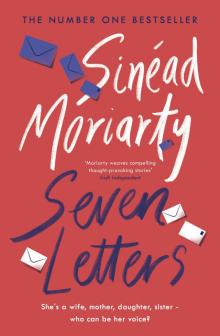 Seven Letters
Seven Letters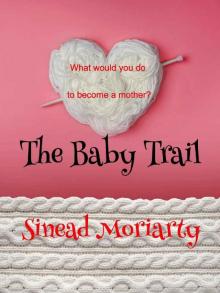 The Baby Trail: How far would you go to have a baby? (The Baby Trail Series (USA) Book 1)
The Baby Trail: How far would you go to have a baby? (The Baby Trail Series (USA) Book 1)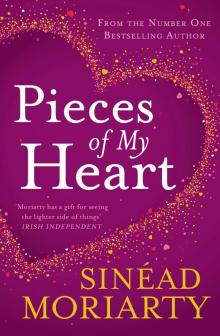 Pieces of My Heart
Pieces of My Heart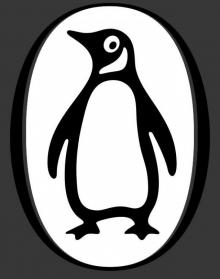 In My Sister's Shoes
In My Sister's Shoes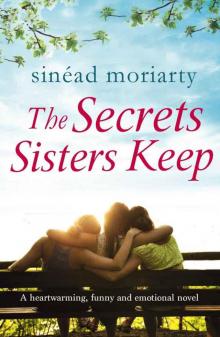 The Secrets Sisters Keep: A heartwarming, funny and emotional novel (The Devlin Sisters Book 2)
The Secrets Sisters Keep: A heartwarming, funny and emotional novel (The Devlin Sisters Book 2)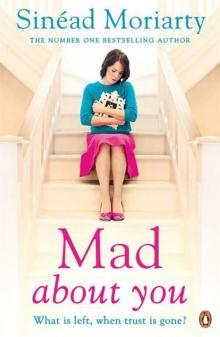 Mad About You
Mad About You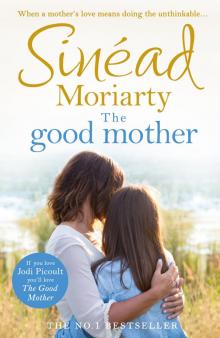 The Good Mother
The Good Mother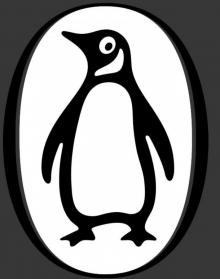 From Here to Maternity
From Here to Maternity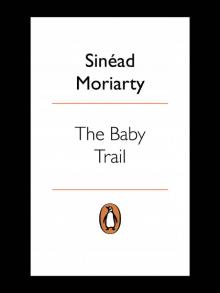 The Baby Trail
The Baby Trail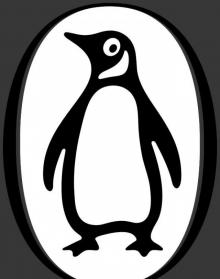 A Perfect Match
A Perfect Match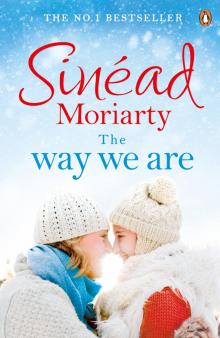 The Way We Are
The Way We Are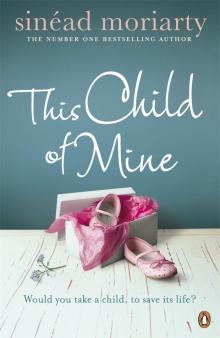 This Child of Mine
This Child of Mine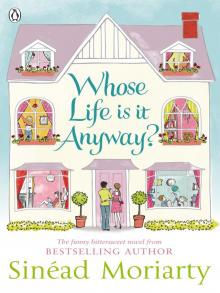 Whose Life is it Anyway?
Whose Life is it Anyway?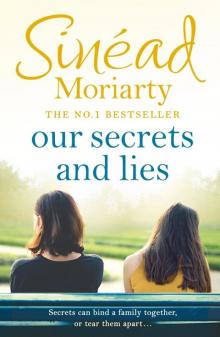 Our Secrets and Lies
Our Secrets and Lies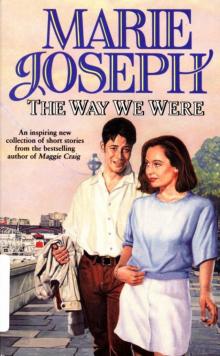 The Way We Were
The Way We Were